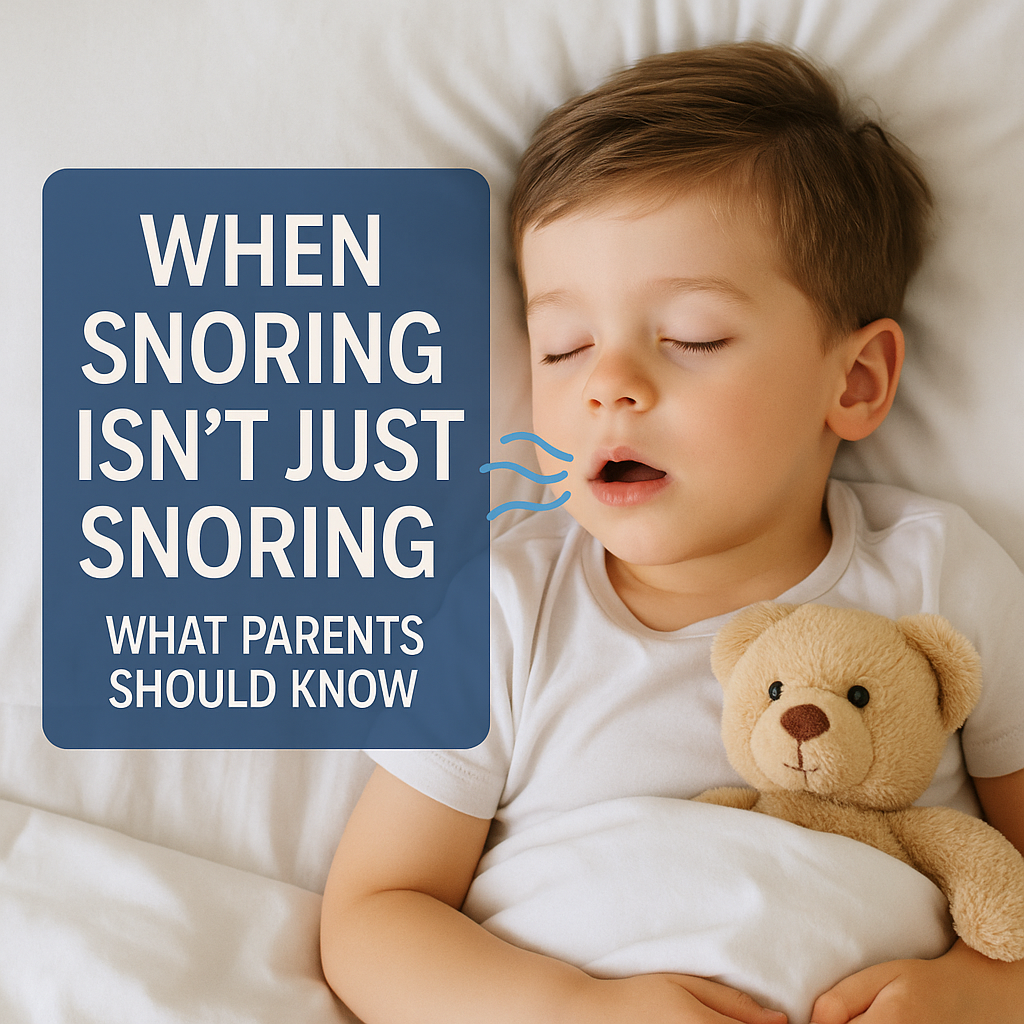Snoring in children is often brushed off as something cute or harmless—but it can sometimes be a sign of something more. Occasional snoring isn’t unusual, especially when kids have a cold or allergies. But if it becomes regular, loud, or seems to affect your child’s breathing or sleep quality, it may be time to dig a little deeper.

One of the most common causes of persistent snoring in children is enlarged tonsils or adenoids. These are pieces of soft tissue at the back of the throat and nose that help fight infection. In some children, they become chronically enlarged and can block the airway during sleep. This can lead to obstructive sleep apnoea, where breathing is repeatedly interrupted during the night.
Sleep apnoea in children doesn’t always look the same as in adults. Rather than just feeling tired, children might become hyperactive, struggle with attention, or show signs of behavioural issues. Poor-quality sleep affects everything—from mood and memory to school performance and general wellbeing.
So when should you take snoring seriously?
Some signs to look out for include:
- Loud snoring most nights
- Pauses in breathing while asleep
- Restless sleep or frequent waking
- Mouth breathing during the day
- Daytime fatigue, irritability, or difficulty concentrating
If any of these symptoms sound familiar, it’s worth having a conversation with your child’s GP or paediatrician. In some cases, referral to an Ear, Nose and Throat (ENT) specialist is the next step.
ENTs are experts in diagnosing and treating conditions that affect the airway, including issues with the tonsils, adenoids, nasal passages and sinuses. If enlarged tonsils or adenoids are identified as the cause, surgical removal may be recommended—particularly if the sleep disruption is significant or ongoing.
At Complete Children’s Health, we regularly work alongside ENT specialists to ensure children get comprehensive, well-coordinated care. Our paediatric team can help assess sleep-related symptoms, rule out other causes, and refer to a trusted ENT when needed. We understand that surgery can feel like a big step for families, so we’ll walk you through what to expect, answer your questions, and help decide what’s best for your child’s health and development.
It’s also worth noting that not all snoring is caused by enlarged tonsils or adenoids. Other factors, such as chronic allergies, frequent nasal congestion, or structural differences in the airway, can also play a role. That’s why a full assessment—including medical history, a sleep history, and sometimes sleep studies—is important before making any decisions about treatment.
In many cases, resolving sleep-disordered breathing can be life-changing—not just for the child, but for the whole family. Better sleep can mean calmer mornings, improved focus at school, fewer meltdowns, and a generally happier child.
If your child is snoring more than just occasionally, don’t ignore it. Help is available, and you don’t have to navigate it alone.
